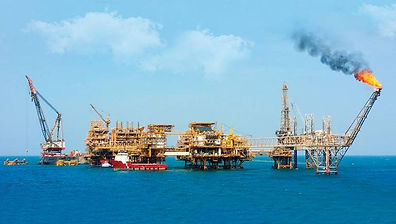Bachelors Programs available
-
Bachelors in COMPUTER SCIENCE
-
Bachelors in ICT AND INTERNET ENGINEERING
-
Bachelors in COMPUTER AND AUTOMATION
-
Bachelors in COMPUTER SCIENCE
-
Bachelors in COMPUTER ENGINEERING
Masters Programs available
-
Masters in COMPUTER SCIENCE
-
Masters in ICT AND INTERNET ENGINEERING
-
Masters in COMPUTER AND AUTOMATION
-
Masters in COMPUTER SCIENCE
-
Masters in COMPUTER ENGINEERING
Mechanical Engineering
Mechanical Engineering & Aerospace Engineering
-
Mechanical engineering is the discipline that applies engineering, physics, and materials science principles to design, analyze, manufacture, and maintain mechanical systems. It is the branch of engineering that involves the design, production, and operation of machinery.[1][2] It is one of the oldest and broadest of the engineering disciplines.
-
The mechanical engineering field requires an understanding of core areas including mechanics, kinematics, thermodynamics, materials science, structural analysis, and electricity. In addition to these core principles, mechanical engineers use tools such as computer-aided design (CAD), and product life cycle management to design and analyze manufacturing plants, industrial equipment and machinery, heating and cooling systems, transport systems, aircraft, watercraft, robotics, medical devices, weapons, and others.

Electronical Engineering
Electrical & Electronics Engineering Programs
1.Electrical engineering is a field of engineering that generally deals with the study and application of electricity, electronics, and electromagnetism. This field first became an identifiable occupation in the later half of the 19th century after commercialization of the electric telegraph, the telephone, and electric power distribution and use. Subsequently, broadcasting and recording media made electronics part of daily life. The invention of the transistor, and later the integrated circuit, brought down the cost of electronics to the point they can be used in almost any household object.
2.Electrical engineering has now subdivided into a wide range of subfields including electronics, digital computers, power engineering, telecommunications, control systems, radio-frequency engineering, signal processing, instrumentation, and microelectronics. Many of these subdisciplines overlap and also overlap with other engineering branches, spanning a huge number of specializations such as hardware engineering, power electronics, electromagnetics & waves, microwave engineering, nanotechnology, electrochemistry, renewable energies, mechatronics, electrical materials science, and many more.
3.Electrical engineers typically hold a degree in electrical engineering or electronic engineering. Practicing engineers may have professional certification and be members of a professional body. Such bodies include the Institute of Electrical and Electronics Engineers (IEEE) and the Institution of Engineering and Technology (professional society) (IET).
Chemical Engineering
-
Chemical engineering is a branch of engineering that applies physical sciences (physics and chemistry), life sciences (microbiology and biochemistry), together with applied mathematics and economics to produce, transform, transport, and properly use chemicals, materials and energy. A chemical engineer designs large-scale processes that convert chemicals, raw materials, living cells, microorganisms and energy into useful forms and products.
Bachelors Programs available
-
Bachelors in Process Engineering & Energy Technology
-
Bachelors in Water Resources Engineering and Management
-
Bachelors in Water Science
-
Bachelors in Material Science
-
Bachelors in Chemical Engineering & Process Systems
-
Bachelors in Polymer Material Science
-
Bachelors in Chemical & Process Engineering

Bachelors Programs available
-
Bachelors in ELECTRICAL/AUTOMATION
-
Bachelors in ELECTRICAL
-
Bachelors in CONTROL ENGINEERING
-
Bachelors in INDUSTRIAL AND AUTOMATION
-
Bachelors in NANO TECHNOLOGY ENGINEERING
-
Bachelors in ARTIFICIAL INTELLIGENCE AND ROBOTICS
Masters Programs available
-
MastersinELECTRICAL/AUTOMATION
-
Masters in ELECTRICAL
-
Masters in CONTROL ENGINEERING
-
Masters in INDUSTRIAL AND AUTOMATION
-
Masters in COMMUNICATION ENGINEERING
-
Masters in NANO TECHNOLOGY ENGINEERING
-
Masters in ARTIFICIAL INTELLIGENCE AND ROBOTICS

Masters Programs available
-
Masters in Process Engineering & Energy Technology
-
Masters in Water Resources Engineering and Management
-
Masters in Water Science
-
Masters in Material Science
-
Masters in Chemical Engineering & Process Systems
-
Masters in Polymer Material Science
-
Masters in Chemical & Process Engineering
